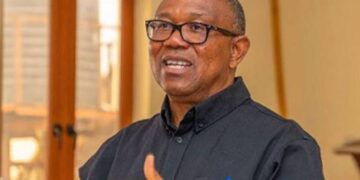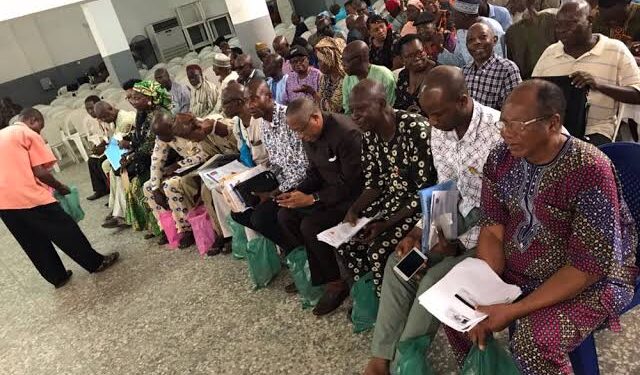Retired civil servants in Kaduna, Kano and Katsina states have decried the non-payment of their retirement benefits.
The retired workers said the situation was unbearable with the harsh economic situation of the country.
A survey conducted by the News Agency of Nigeria (NAN) reports that civil servants who retired in March 2023 were yet to receive their accrued benefits.
In Kaduna State, Ahmad Kawure, a retired employee of the National Directorate of Employment (BDE), said he retired in October 2023 and has not received his benefits.
“My pension administrator has not called me to explain the reasons for the delay, but we heard that the delay was due to the federal government’s failure to pay the National Pension Commission.
“PENCOM will now pay pension funds administrators before retirees can get their money,” he said.
Another retiree who pleaded anonymity said the government’s delay in paying the pensioners was regrettable.
He said people who served the country for 35 years should be treated with respect and dignity and be paid accordingly so that they won’t suffer after retirement.
Also, he urged the government to pay accrued benefits to PENCOM even before retirement so that issues like delayed payment would be addressed.
“Most civil servants retire without a home of their own, and they rely on the money they have been saving for years to buy a house or venture into business. Unfortunately, most of them are now poor, with no income and lots of family responsibilities. Some get sick and cannot afford medical care.
“Government should prioritise the issue of pensioners or retirees and ensure all payments are made on time; this would encourage civil servants in service to be honest and hardworking,“ he said.
In Kano State, some state and federal government retirees, as well as pensioners, also decried the late payment of their monthly pensions and retirement benefits.
The News Agency of Nigeria (NAN) reports that the Pension Reform Act came into effect on 1 July 2014 to govern and regulate the administration of contributory pension schemes in the public and private sectors.
Under the Act, the employer and employee are required to make a minimum of 10 per cent and eight per cent contributions, respectively.
Former President Olusegun Obasanjo’s administration had introduced the new pension scheme to address the problems associated with non-payment of pensions for several years by the previous administrations.
A retiree, Baba Isa, told NAN that despite his efforts to collate, complete, and submit all necessary documents after retirement, his PFA had failed to pay him.
“I do not know why my PFA has not called me or paid any money into my account. I have filled all the forms they requested but have not heard from them,’’ he said.
“It has not been easy living without monthly income since I have retired, and my little savings are gradually being depleted,” he explained.
Adamu Aminu, who also disengaged after 35 years in service, said because of the delay in the payment of his pension, he could not buy some essential drugs for his ailment.
“I appeal to the PFA to release my money. I cannot understand why I have not been able to receive any money one year after I retired,” he said.
Salisu Nura expressed frustration with the country’s severe economic challenges and urged President Bola Tinubu to intervene.
He also lamented the handling of fuel price hikes and hyperinflation, saying they were disproportionately affecting pensioners already struggling with meagre pensions.
Mr Nura said that he started receiving his pension one year after his retirement.
Ali Musa, another pensioner, said the situation had worsened the financial strain on pensioners.
He appealed to the government at all levels to match the percentage rise in the minimum wage with that of pension to ensure fairness and help pensioners cope with the rising cost of commodities.
Mr Musa said he started receiving his monthly pension 15 months after retirement.
In Katsina State, the Coalition of CSOs described the federal government pension scheme as an exploitation of the workers at the weakest and most vulnerable cycle of their lives.
The coalition chairman, Abdulrahman Abdullah, said in an interview with the News Agency of Nigeria (NAN) in Katsina that the scheme favours the pension administrators at the expense of the retirees.
“The administrators make money from workers’ contributions right from the onset of their employment and continue to enjoy the same until their retirement age. Workers should be given 100 per cent of their contributions a month to their retirement.
“However, the federal government needs to provide investment training for workers a year before their retirement so their gratuity can be used as seed funds to continue with their learnt investment skills. At the age of 60, a worker is mature enough to manage his money,” the CSO chairman said.
According to him, it is unfortunate that some retirees wait between six months and a year to receive their gratuity from their pension administrators.
“The system is completely exploitative of the workers,” Mr Abdullahi lamented.
NAN














































